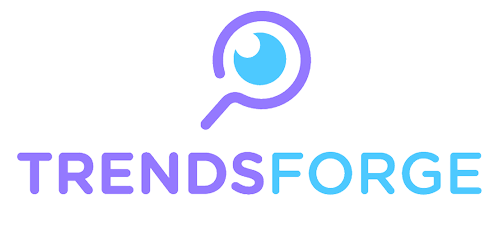Is Consolidating Credit Card Debt with a Personal Loan Worth It?
Consolidating your credit card debt with a personal loan may seem like a viable option during difficult circumstances. However, it is critical not to make any financial decisions without serious analysis, especially today. If you’re struggling with credit card debt, consolidation could be a solution.

However, navigating the many techniques accessible can be confusing. This page seeks to clarify the procedure.
For many people, a personal loan is an opportunity to gradually lower their entire debt burden. However, the benefits and costs of taking out such a loan must be carefully considered. Understanding if a personal loan is right for you and locating reliable lenders who are prepared to help might be difficult.
By the end of this article, you’ll understand not just whether a personal loan is a realistic option for your credit card debt, but also how to get one and implement efficient debt repayment tactics. While it will require some discipline on your part, dealing with credit card debt can become a doable task with the appropriate counsel.
What Exactly is a Personal Loan?
Personal loans are often unsecured since they do not demand collateral. Instead, lenders consider indicators such as your credit score, debt-to-income ratio, and payback history when determining eligibility and offering an interest rate. This rate can be set for the term of the loan, variable, or a combination of the two.
Personal loan interest rates can range from as low as 4.99% to 35.99% or more. Ideally, obtaining a rate lower than that of your credit card might assist reduce overall interest payments when you pay off your credit card balance with the loan.
Pros and Cons of Personal Loans
Financial professionals frequently give arguments in support of and against personal loans.
Pros:
- Personal loans provide flexibility in that they can be utilized for a variety of reasons without restriction.
- A timely repayment of a personal loan can help to improve your credit score.
- With regular payments and interest, you can establish specific financial goals and plan for a debt-free future.
- Transition from making minimum payments to a structured repayment plan.
- Depending on your eligibility, you can borrow varied sums.
- Many lenders offer lax eligibility restrictions, making personal loans available to the majority of people.
Cons:
- Personal loans include fees and penalties that represent lenders’ administrative costs.
- Personal loans carry the risk of late payments and the resulting credit score impact.
- Because not all lenders focus your financial well-being, you must conduct careful research.
- Personal loans can help with debt, but they may not address underlying spending habits; creating a budget is critical.
Finally, the decision to take out a personal loan is based on your financial priorities and circumstances. This article is a start towards making an informed decision.
Best Personal Loan Options for the Year 2020
It is easy to talk about the possibilities at personal loan then how do they transform into reasonable or pragmatic approaches? Here are a few respectable companies that provide personal loans tailored to your needs:Here are a few respectable companies that provide personal loans tailored to your needs:
- Social Finance (SoFi): Overall rating is great with special highlights as the high credit rating, good for good to excellent credit, and offers unemployment insurance.
- LightStream is perfect for those with a good credit score and interested in making changes for the better in their houses, as the terms are rather advantageous providing lower interest rates and reasonable payback periods.
- Upgrade: Best for individuals who have imperfect credit and are in need of quick access to credits; none of the offered products have prepayment penalties.
- LendingClub: It is suitable for small loan deals, especially when one wants a co-signer; it offers choices of Peer-to-Business lending.
- Payoff: It can even consolidate the credit card balances without charging additional fees for being late.
- Upstart: Does not require extended credit checks with a tenancy to approve clients with comparatively low credit scores; has a great reputation for the high quality of service.
- Marcus by Goldman Sachs has a unique selling proposition where it’s free from origination charges; however, it is ideal for bank loans and debt consolidation.
- Here is a summary of PNC Bank Personal Loan products; Secured and unsecured, reasonable fees, no origination, prepayment or yearly fees.
How will you proceed next now that you know the ability of personal loans to consolidate your credit card balance and you are equipped with a list of lenders you may wish to borrow from?
What Happens Next After You Secure a Personal Loan?
If personal loans do not appeal to you, you should consider other options before moving forward. Balance transfers, home equity loans, and other consolidation procedures are still feasible options.
If a personal loan is right for you, you should first examine your existing financial circumstances. Determine your credit score, total debt, and reasonable monthly payments. Next, refine your list of potential lenders and speak with their representatives to better understand their processes.
Many lenders provide pre-approval processes, which may have a modest impact on your credit score. However, be sure you aren’t charged for applying. After applying, thoroughly examine the offers, taking into account all terms and restrictions. A apparently beneficial bargain may mask hidden hazards, such as substantial interest rate increases.
Securing the loan is only the beginning. Implement your financial plan diligently, making monthly payments on schedule. After making your final payment and eliminating your obligation, meticulously check your credit report for correctness, as inaccuracies are not unusual.
Consider All Your Options
While personal loans can help you manage unmanageable credit card debt, you should proceed with caution. Use this chance to improve both your financial status and your financial literacy. Expand your vision to include investing and saving, laying the groundwork for a stable financial future. It all starts with making informed decisions and practicing disciplined financial management.






